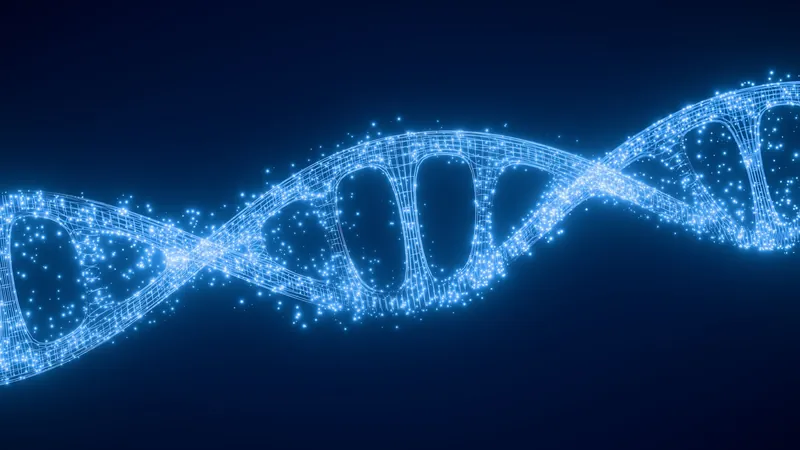
Unlocking the Secrets of Hibernation: Could Humans Access Hidden Superpowers?
2025-08-03
Author: Jia
Imagine if humans could tap into hidden abilities from our genes, just like hibernating animals do. Recent studies reveal that we hold the key to potential 'superpowers' linked to hibernation—an astonishing discovery that could revolutionize how we tackle medical conditions.
The Science Behind Hibernation and Human Potential
While hibernating mammals dramatically lower their metabolism, utilizing specific genes, researchers at the University of Utah suggest that humans share similar DNA. This groundbreaking research indicates that by harnessing these genes, we could potentially address various health issues, including diabetes and neurological damage.
Hibernation equips animals like ground squirrels with remarkable adaptations, such as reversible insulin resistance that aids in swift weight gain pre-hibernation and dissipates once hibernation begins. Understanding how these mechanisms work may offer crucial insights into combating type 2 diabetes in humans.
Discovering the Genetic Mechanisms of Hibernation
In studies published in the journal *Science*, researchers identified pivotal genetic levers that control hibernation-related genes. Though mice don’t hibernate in the traditional sense, they can enter a state of torpor after fasting, making them ideal subjects for this research. Using CRISPR technology, scientists deactivated specific genetic elements in these mice to observe the metabolic changes that followed.
Notably, the study focused on the 'fat mass and obesity-related locus'—a gene cluster similar to one found in humans associated with obesity. By manipulating these noncoding elements, researchers witnessed changes in the mice's weight, metabolic rates, and even their food-seeking behaviors.
Promising Implications for Human Health
This research is deemed "highly promising" by experts, given the FTO locus's established link to human obesity. Deleting specific gene elements affected weight gain and foraging behaviors in female mice, indicating that variations in gene control may distinguish hibernators from non-hibernators.
Future Research Directions
Despite the exciting findings, researchers acknowledge many questions remain. Dr. Joanna Kelley points out the complexities of translating these findings to humans, noting that unlike mice, we lack the ability to enter torpor. Future studies may involve exploring other species that can't enter this state, aiming to unveil the broader implications of these genetic elements.
As scientists strive to unlock the activation mechanisms of these ‘hibernation hub genes’ in humans, the vision is clear: potentially developing drugs that could mimic the health benefits seen in hibernating animals without needing us to hibernate.
A New Frontier in Genetics and Medicine
This research not only shines a light on the untapped genetic potential within us but also raises the intriguing possibility that understanding these ancient survival mechanisms might one day lead to innovative treatments, ensuring humans harness their very own superpowers for improved health and longevity.




 Brasil (PT)
Brasil (PT)
 Canada (EN)
Canada (EN)
 Chile (ES)
Chile (ES)
 Česko (CS)
Česko (CS)
 대한민국 (KO)
대한민국 (KO)
 España (ES)
España (ES)
 France (FR)
France (FR)
 Hong Kong (EN)
Hong Kong (EN)
 Italia (IT)
Italia (IT)
 日本 (JA)
日本 (JA)
 Magyarország (HU)
Magyarország (HU)
 Norge (NO)
Norge (NO)
 Polska (PL)
Polska (PL)
 Schweiz (DE)
Schweiz (DE)
 Singapore (EN)
Singapore (EN)
 Sverige (SV)
Sverige (SV)
 Suomi (FI)
Suomi (FI)
 Türkiye (TR)
Türkiye (TR)
 الإمارات العربية المتحدة (AR)
الإمارات العربية المتحدة (AR)